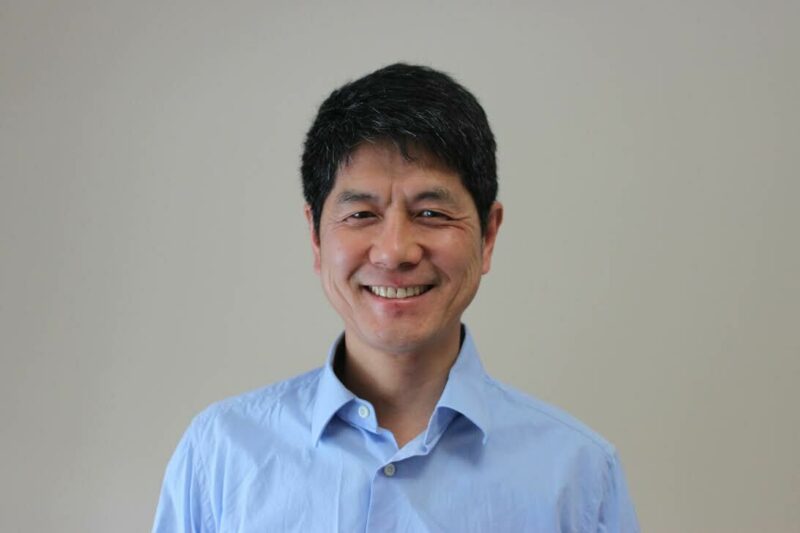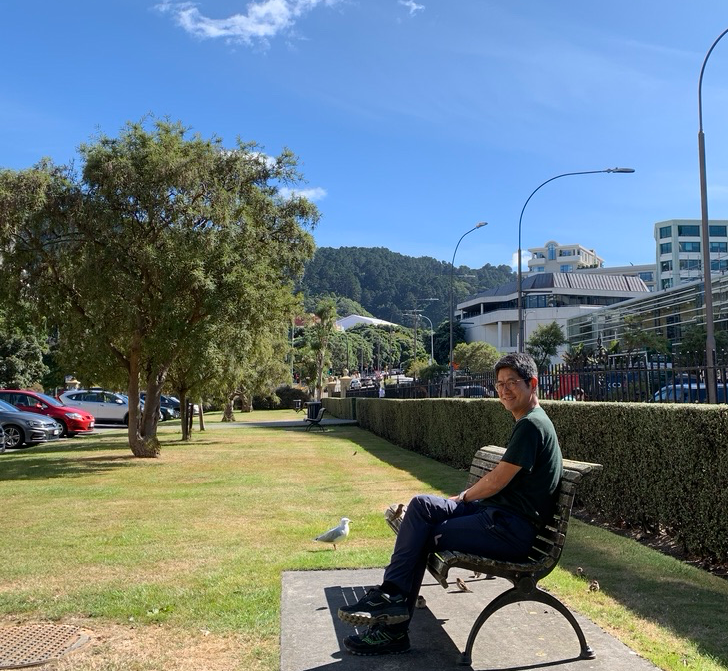Q&A with Youngsoo Kim, URFA Treasurer
What prompted URFA Treasurer Youngsoo Kim to join serve in this position? How do the roles and responsibilities of URFA’s Treasurer connect with bargaining and potential job action? What are the top three things that he enjoys about his position as associate professor of finance at the University of Regina? Find out in this Q&A.
What interested you in becoming involved with URFA?
I have to take the clock back a little bit. During my early days at U of R I had unpleasant experience, so I turned to URFA. The grievance chair helped me in dealing with that episode, so I was very appreciative at that time. And after I got tenure, I thought I’d better pay back what I owe to URFA. So, it’s more of helping younger people who might be in the same shoes as I had in earlier time. And about a month or two ago, I actually had a chance to talk to that person at URFA who helped me during that time period. She remembered me and she clearly remembered all the episodes at that time. So, we were able to talk and she really appreciated my getting back to her and I said thank you. It’s a circle. I’m happy to be here and trying to give a little hand to the faculty members in need.

URFA Treasurer, Youngsoo Kim. Photo provided by Youngsoo Kim.
What are the Treasurer’s responsibilities?
It is financial planning in the short-term and in the long term. We have two financial activities. The first one is day-to-day operations. Money comes in, money goes out, so we need to have some idea about what will happen to the bottom line at the end of fiscal year. Will there be bigger hole or will there be a large surplus at the end of at the end of fiscal year? That is short-term financial planning.
Now the second one, which is equally important, is long-term planning. We have trust fund. It is about $3.5 million and it’s invested in, you know, various capital markets and that money really has a vital purpose — a strike fund gives us a strong ammunition when we’re bargaining. If we don’t have enough ammunition, our position cannot be strong, so it is very important to invest this part of money in a sensible way.
That’s the major responsibilities of a Treasurer, and that’s where the Trust Fund Committee and the Finance Committee come in. The Finance Committee deals with the day-to-day financial planning. the Trust Fund Committee are more focused on the long-term management of this trust fund.
And about the record keeping and producing the financial statements, I don’t have a direct involvement with that — it is delegated to the Financial Officer and Executive.
Can you say a bit more about how the investments we have are helpful when it comes to bargaining?
If we have enough money behind us then we can easily go to the members for a mandate for strike. Being on the picket row is a costly process since members will not get salary from the university. Well, that’s where this trust fund money is very useful — we pay to the members during the strike period.
Let’s shift the focus to your work now at the university. Would you like to share a bit about what you teach and your areas of research if you have?
I teach finance right now. I’ve been teaching lately the introductory corporate finance. This is really a foundation of entire finance courses. In a 400 level right now I’m teaching financial markets.
For research side, I’ve been doing something called market microstructure. It sounds strange, but basically, it’s looking at the effect of the design of a stock market exchange on the trading cost. If you buy and sell, well, there there’s a cost, and the design of the stock exchange affects the trading costs. There’s billions and billions and billions of dollars trading costs and that’s income to the finance company there, so it’s an important investment. Small investors do not pay much attention there, but it is important aspect.
And lately I have interests in a political connection, politics and finance. In my last paper, I’ve looked at the effect of a presidential power on the stock return of the company. When a president is a very powerful versus a weak president, does it affect the stock return? That’s the kind of thing I am interested in these days — politics and finance.
What interested you in finance as an area for your career and for your research?
I was a banker for a few years. I was a middle manager and at that time I liked my job and pay was good. After a few years as a banker, I felt something lacking and I wanted to do something just for myself. I think at the back of mind doing a PhD was there all along, so I made a career-changing decision. I went to a PhD program, and that’s a start of my new career, and here I am. I don’t have any regret in pursuing this line of vocation– it suits me.

Youngsoo Kim during his last sabbatical in Wellington, New Zealand. Photo provided by Youngsoo Kim.
What do you enjoy most about your current career?
One is I choose to work on the topics that I find interesting. That’s a luxury of having tenure. Before tenure, you have to produce a certain number [of articles] so you don’t have luxury — the publication is a top priority.
And then, well, I like sabbatical.
Is there something that surprises your students about the materials that you cover in your courses or with the research that you do?
We don’t have a graduate schools and undergrad students really are not familiar with the research work I’m doing, but the feeling I got in the classroom is that they learn the finance is quite rigorous and abstract. I think that that’s a lot different from what they have expected. Finance is a sub-field of economics so in general, the approaches are quite mathematical, formal, model-oriented and we need to back up the result with very strong mathematical and statistical rigour.
We use a lot of mathematics and mathematics is quite abstract. You need to sit down and spend a lot of time thinking. And so, I think students haven’t expected that finance could be that rigorous. It requires a lot of statistics and then some mathematics.
Is there any advice that you have for URFA members who are looking to get more involved with URFA?
Consider joining URFA. We have a lot of committees so they can be a member and if they find it interesting, they can be a member of the standing committee.
I have another thing for that matter — you know there are some professors who aspire to be an administrator at the university. Even for those people, I think the experience with URFA is very useful for them because they can have a better perspective. They can understand better what the union members’ concerns are and it will make them more effective and a better manager once they decide to go for that route.
This interview has been condensed and edited.
Enjoy reading Q&As with URFA members?
Read our previous Q&A with Claire Carter, URFA Equity Committee Chair.
